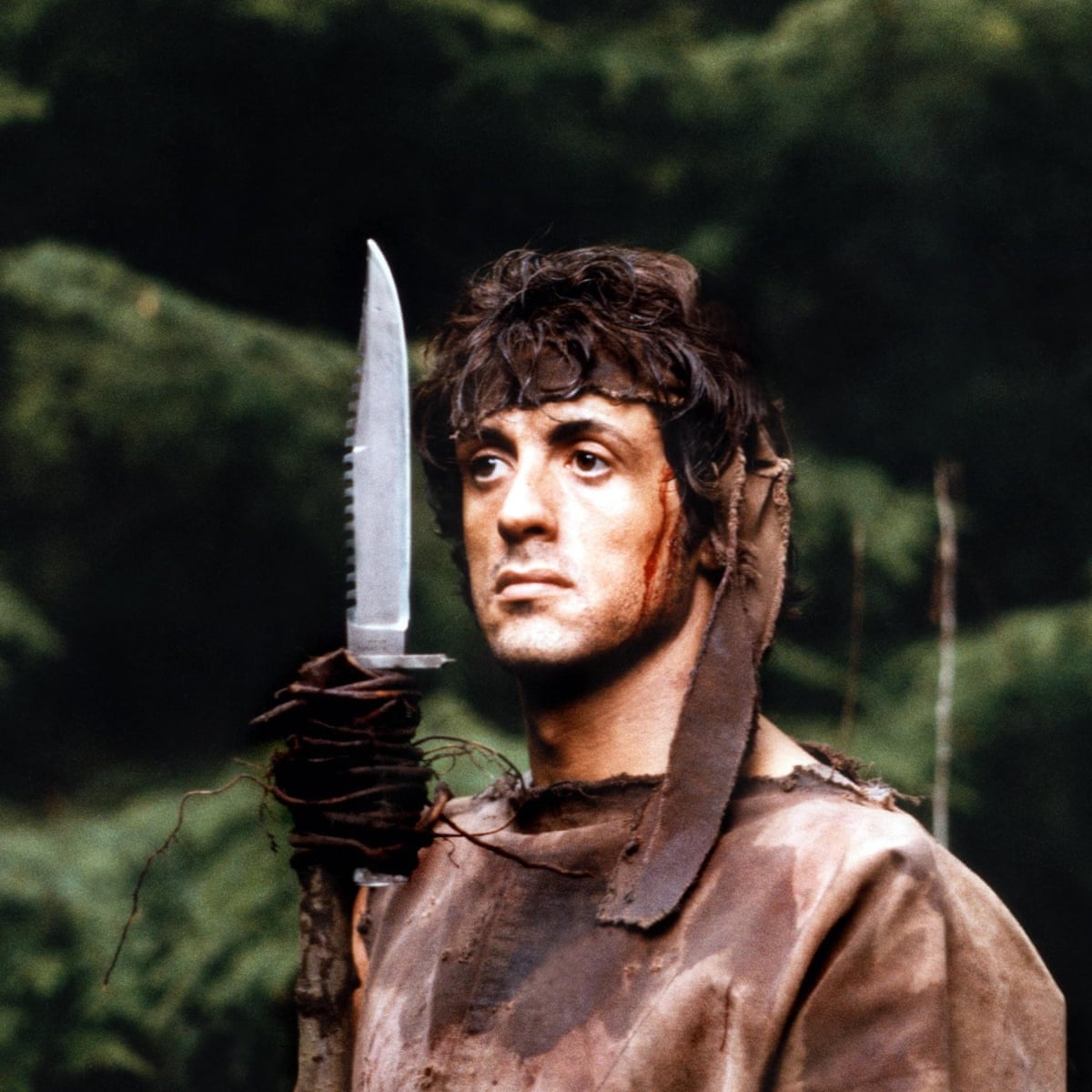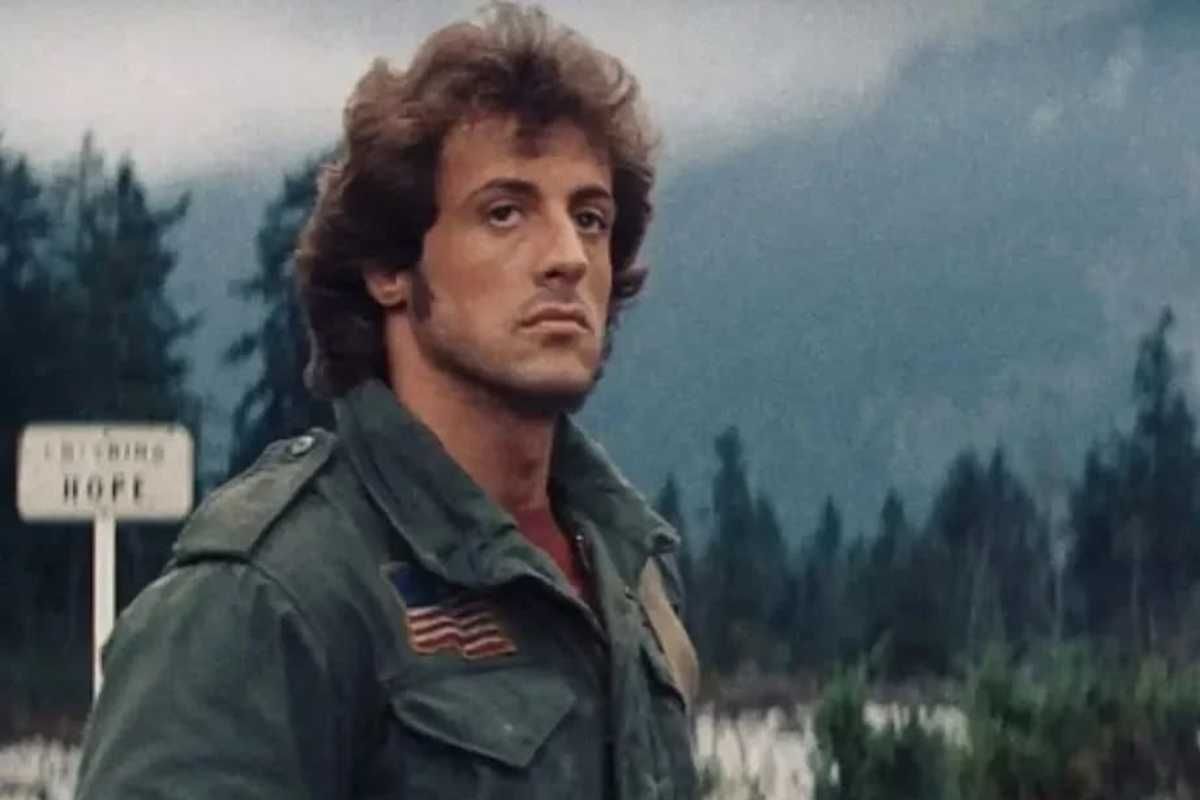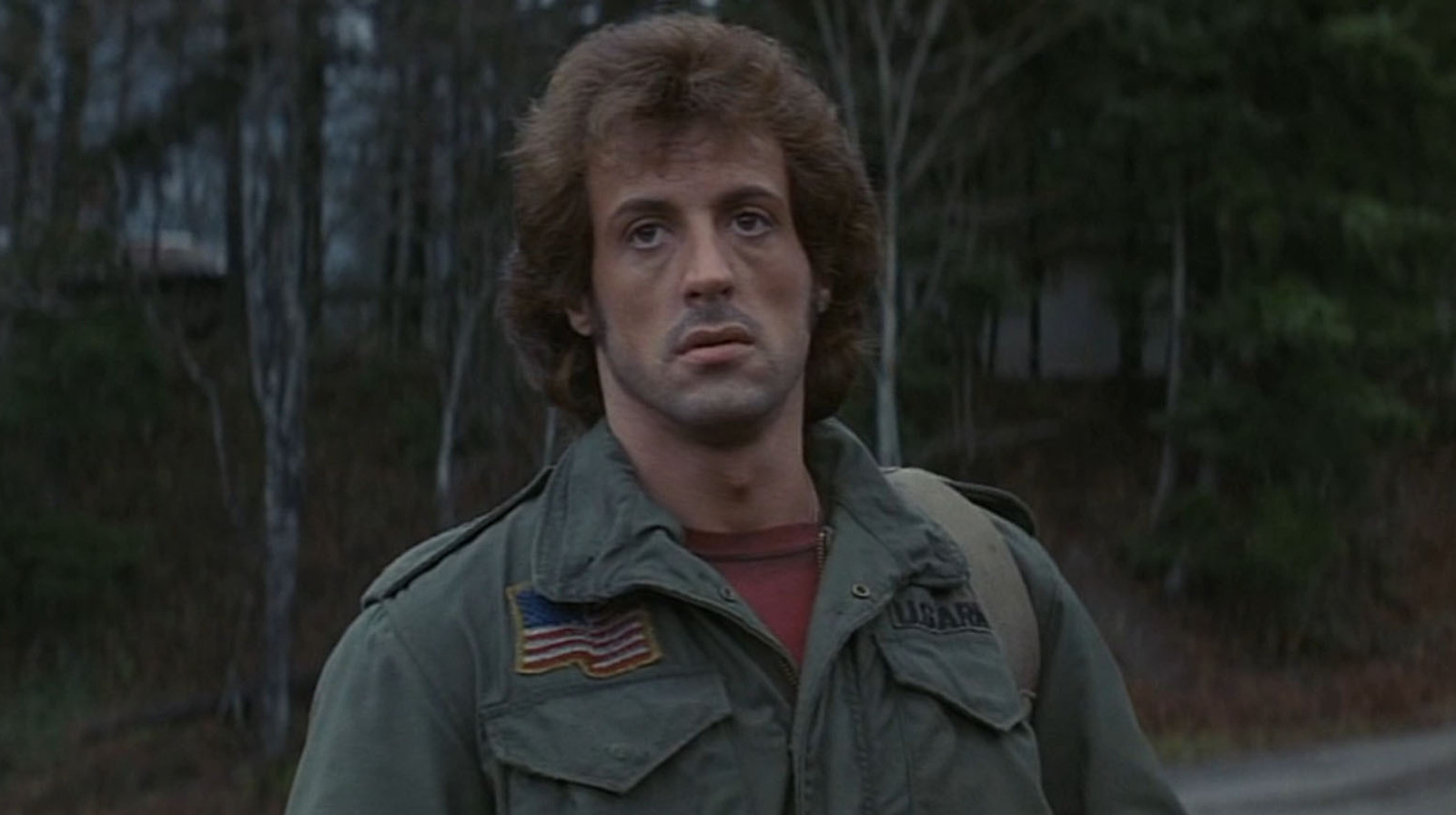First Blood is the film that introduced the world to John Rambo, one of cinema’s most enduring action heroes. Set in the early 1980s, the movie tells a gripping story not just of survival, but of how war changes a man long after the battle ends.

John Rambo, a former Green Beret and Vietnam War veteran, travels through a small town in Washington State looking for a fellow soldier. When he learns his last surviving comrade has died, he is left completely alone. Tired, hungry, and disheartened, Rambo enters the town of Hope, where local sheriff Will Teasle stops him, viewing him as a drifter and troublemaker.
Teasle drives Rambo out of town, but when Rambo walks back, the sheriff arrests him for vagrancy. In jail, the deputies treat him cruelly — especially when they try to shave him, triggering flashbacks of his time as a prisoner of war in Vietnam. Traumatized, Rambo fights back violently and escapes into the surrounding forest.

What begins as a small-town arrest spirals into a one-man war. Using his combat skills, Rambo evades hundreds of policemen and National Guard troops, taking them out non-lethally one by one. His former commanding officer, Colonel Trautman, arrives and warns the authorities that Rambo “was trained to eat things that would make a billy goat puke” — and that they’re outmatched.

Despite Rambo’s deadly abilities, his actions are not driven by hatred but by pain and desperation. In the powerful final scene, Rambo breaks down in tears, confessing to Trautman about his post-war trauma, nightmares, and how society turned its back on returning soldiers.

First Blood ends not with glory or victory, but with heartbreak — Rambo surrendering, exhausted and broken, symbolizing the inner war many veterans face.



